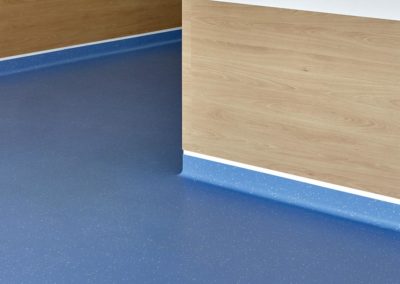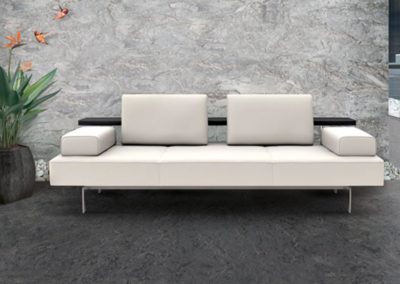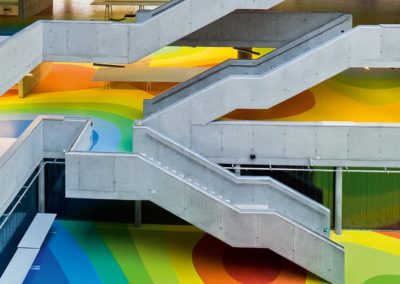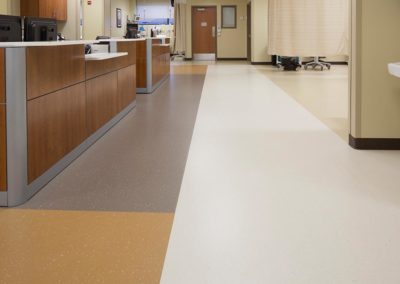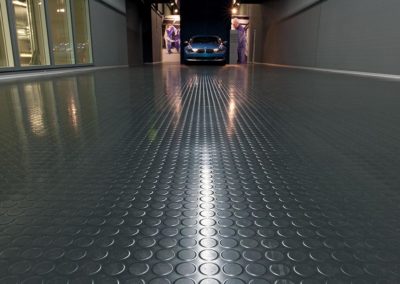Rubber flooring - for use in heavy-duty areas
The hard-wearing rubber — no floor covering can withstand more!
Are you looking for a suitable floor for a gym, school or factory floor? Then rubber flooring is the perfect choice for you. The Rubber floor is extremely hard-wearing and has a very high wear layer. The floor can withstand particularly heavy loads, making it ideal for use in shops or halls.
Surface textures for rubber flooring
Rubber flooring can be produced in a wide variety of surface structures. In addition to a smooth surface, it is often installed with a slate-like profile or a hammered surface. Rubber can also be laid as a rubber studded floor to prevent slipping, for example in swimming pools. High levels of moisture are also no problem for the floor.
Rubber floors are resilient and resistant
Rubber is extremely elastic and an ideal choice for high-traffic areas. Another plus point is its environmentally friendly production, as rubber is extracted from trees and processed using a heating process to create the elastic rubber that we are familiar with in our everyday lives.
In our showrooms, all rubber floors from the World market leader NORA exhibited. The German-based flooring manufacturer has been the best partner for rubber flooring since 1950. One revolutionary development from NORA Systems is the nTx quick installation system for self-adhesive rubber flooring.
FAQ - Frequently asked questions about rubber floors
What is rubber?
Rubber is obtained from the rubber tree, which was originally found in the Amazon in South America. Nowadays, most of the trees are grown in East Asia, as this is where the largest production areas are located.
The trunk of the tree contains a milky sap which, when thickened, can be processed into rubber. Since Charles Goodyear invented the process of vulcanisation in 1839, it has been possible to convert rubber into elastic plastic.
Synthetic rubber
There is also synthetic rubber, which is produced using crude oil. On the market, you can choose between natural rubber, synthetic rubber or a mixed variant, with natural rubber being more expensive. Rubber has found its way not only into gloves or tyres, but also into our soil. Its advantages in the areas of robustness and ease of maintenance make it the favourite of major industries.
How do you clean rubber flooring?
Depending on the size of the floor surface, there are two cleaning options: mechanical or manual.
As the robust rubber flooring is often used in high-traffic areas such as airports, schools and other public facilities, cleaning large areas is an advantage. Special scrubber-driers are used for this purpose, which brush the floor with concentrated cleaning agent and then vacuum it up again immediately.
The floor is dried by an air nozzle and can be walked on again immediately. Such a machine is not absolutely necessary for rubber floors in private homes. Here, it is sufficient to wet mop the floor with warm water and suitable cleaning products.
Rubber flooring or vinyl flooring?
Both options are resilient floor coverings. Their properties are largely the same: High abrasion resistance, slip-resistant, pleasantly warm underfoot, good footfall sound insulation and easy to clean.
In fact, for the layman, there is hardly any difference between the floor coverings. The main difference lies in the production process. While Vinyl flooring is made of plastic, the main components for rubber flooring are extracted naturally from the rubber tree.
Due to its environmentally friendly production, rubber flooring is comparatively more expensive. For this reason, rubber floors are rarely used in private households.
Customer testimonials
.


